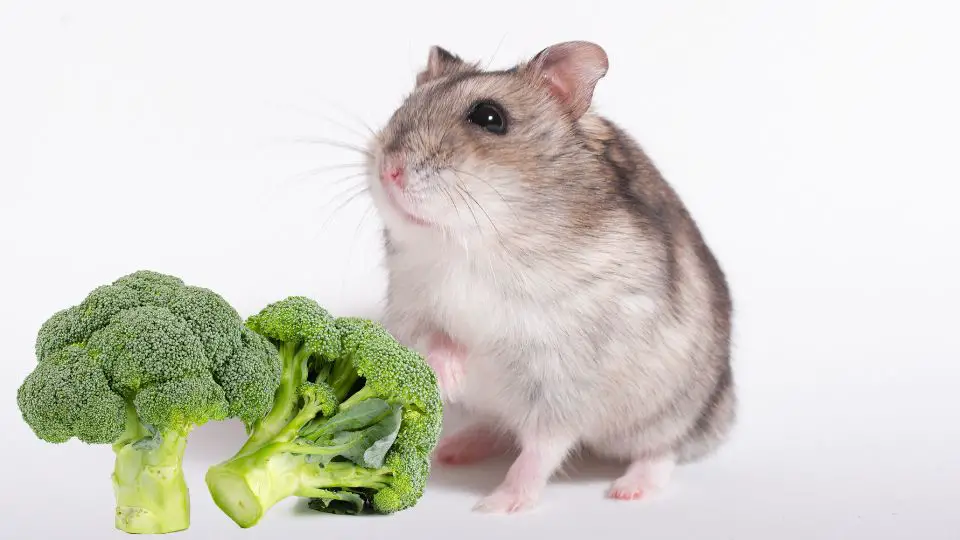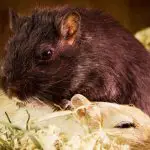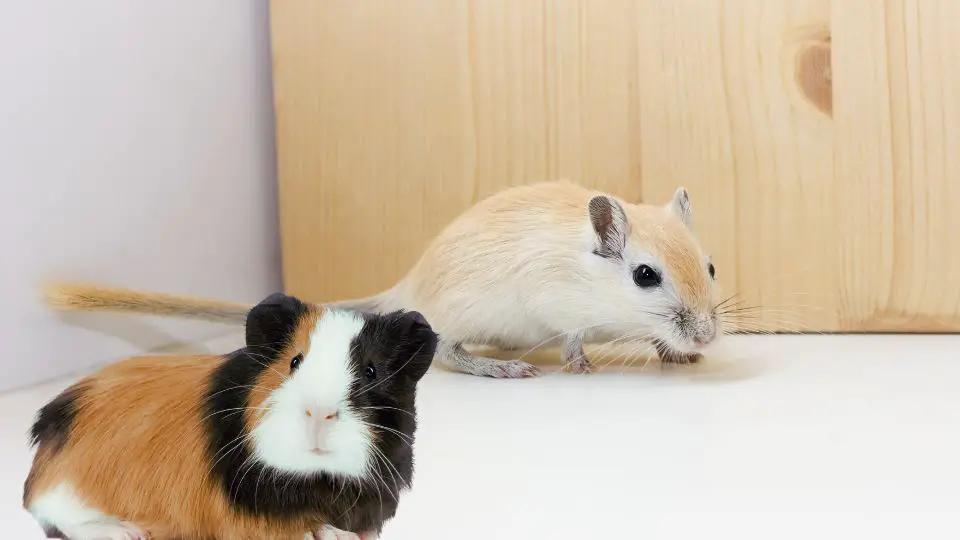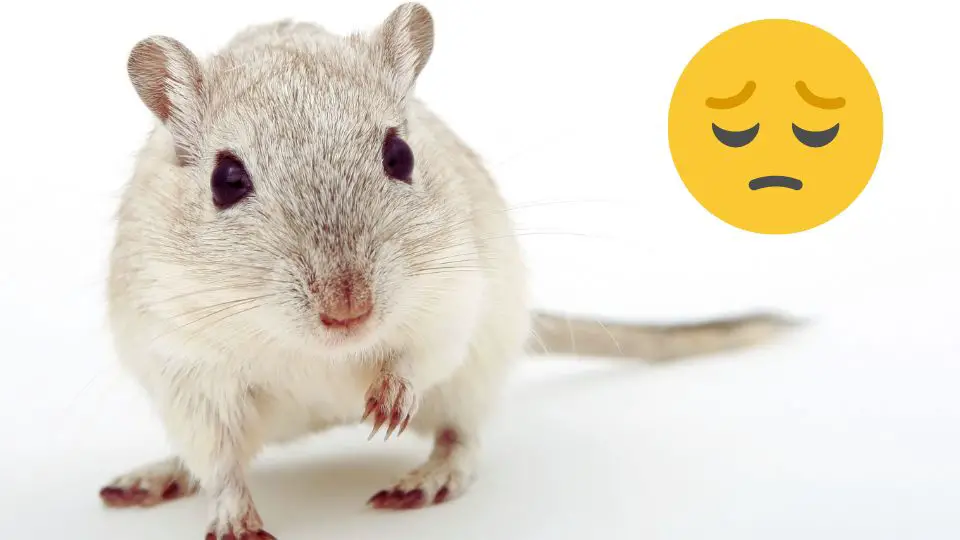When it comes to the dietary needs of gerbils, it’s important to provide a balanced and nutritious diet to ensure their overall health and well-being. One common question that arises is whether gerbils can eat broccoli.
Yes, gerbils can eat broccoli as a weekly treat. It provides plenty of healthy nutrients and minerals.
In this article, we will explore the suitability of broccoli as a part of a gerbil’s diet, examining its nutritional value and discussing the precautions to consider.
Nutritional Value of Broccoli
Broccoli is a cruciferous vegetable known for its rich nutritional profile. While gerbils primarily have herbivorous diets, you have to understand the nutritional value of specific foods to ensure their overall well-being. Let’s explore the nutritional composition of broccoli and the potential health benefits it can offer to gerbils.
Vitamins
Vitamins are essential micronutrients that play a crucial role in the overall health and well-being of gerbils. Broccoli, being a nutrient-dense vegetable, provides several vitamins that are beneficial for gerbil health.
- Vitamin C: Broccoli is an excellent source of vitamin C, which is vital for gerbils. Vitamin C is known for its immune-boosting properties, helping gerbils fight off infections and diseases. It also acts as an antioxidant, protecting cells from damage caused by free radicals. Adequate vitamin C intake promotes overall health and supports the gerbil’s immune system.
- Vitamin A: Vitamin A is crucial for maintaining healthy vision in gerbils. It supports the functioning of the retina, the part of the eye responsible for visual perception. Additionally, vitamin A is involved in cell growth and differentiation, contributing to the overall development and well-being of gerbils.
Minerals
Minerals are essential nutrients that play a vital role in the overall health and well-being of gerbils. Broccoli, being a nutrient-rich vegetable, offers a range of minerals that are beneficial for gerbil health.
- Calcium: Broccoli is a good source of calcium, which is important for gerbils to maintain strong bones and teeth. Calcium is essential for bone development and density, helping to prevent conditions like osteoporosis. Providing gerbils with adequate calcium through foods like broccoli can contribute to their skeletal health.
- Potassium: Another mineral found in broccoli is potassium. Potassium plays a crucial role in maintaining proper muscle and nerve function in gerbils. It helps regulate heartbeat, assists in muscle contraction, and supports the balance of fluids and electrolytes in the body. Including broccoli in a gerbil’s diet can contribute to their potassium intake and overall physiological well-being.
By offering broccoli as part of a balanced diet, gerbil owners can provide these minerals that support bone health, muscle function, and overall physiological processes. Note that while broccoli is a suitable source of minerals for gerbils, it should be offered in moderation alongside other appropriate foods. Consulting with a veterinarian is recommended to ensure the optimal diet for your gerbils.
Fiber
Fiber is an important component of a gerbil’s diet as it contributes to their overall digestive health. Broccoli, being a fiber-rich vegetable, offers several benefits for gerbils in terms of their gastrointestinal well-being.
- Digestive Health: The high fiber content in broccoli promotes healthy digestion in gerbils. Fiber acts as a natural regulator, helping to prevent digestive issues such as constipation. It adds bulk to the stool, which aids in smooth and regular bowel movements. By including broccoli in their diet, gerbils can maintain a healthy digestive system.
- Nutrient Absorption: Fiber also plays a role in nutrient absorption. It helps slow down the digestion process, allowing for better absorption of nutrients from other foods. This ensures that gerbils can extract maximum nutritional value from their diet.
- Weight Management: Fiber-rich foods like broccoli can contribute to weight management in gerbils. The presence of dietary fiber helps promote a feeling of fullness, reducing the likelihood of overeating. This can be beneficial in maintaining a healthy weight and preventing obesity in gerbils.
The potential health benefits of these nutrients in broccoli include strengthening the immune system, supporting bone health, promoting healthy digestion, and providing necessary antioxidants to fight against free radicals.
Feeding Broccoli to Gerbils
Gerbils can enjoy a variety of fresh fruits and vegetables as part of a balanced diet, and broccoli is one of the options to consider. However, introduce broccoli gradually and in moderation to ensure the well-being of your gerbil. Here are some guidelines to follow when feeding broccoli to your gerbils:
- Introduce Gradually: Start by offering a small piece of broccoli to your gerbil and observe their response. If they show interest and tolerate it well, you can gradually increase the portion size over time. This gradual introduction helps prevent digestive upset and allows their system to adjust to the new food.
- Fresh and Washed: Always provide fresh broccoli that has been thoroughly washed to remove any potential pesticides or contaminants. Trim the broccoli florets into small, bite-sized pieces that are easy for your gerbil to consume.
- Moderation is Key: While broccoli offers nutritional benefits, it should be fed in moderation. Too much broccoli can lead to digestive issues such as gas or loose stools. Aim to offer broccoli as an occasional treat rather than a daily staple in their diet.
- Balanced Diet: Remember that broccoli should be part of a varied and balanced diet for your gerbil. Include other vegetables, fruits, and suitable protein sources to provide a diverse range of nutrients. Consult with a veterinarian or do thorough research to ensure you are offering a well-rounded diet for your gerbil’s specific needs.
- Watch for Allergic Reactions: While rare, some gerbils may have allergies or sensitivities to certain foods, including broccoli. Monitor your gerbil closely after introducing broccoli and look out for any signs of allergic reactions such as itching, swelling, or difficulty breathing. If you notice any adverse effects, discontinue feeding broccoli and consult a veterinarian.
- Avoid Seasonings and Additives: When offering broccoli to your gerbil, avoid seasoning it with spices, oils, or dressings. Stick to plain, fresh broccoli without any added ingredients. Seasonings and additives can be harmful to gerbils and may cause digestive upset or other health issues.
Precautions and Considerations
While broccoli can be a nutritious addition to your gerbil’s diet, you have to exercise caution and consider some key precautions. Here is what we recommend to keep in mind when feeding broccoli to your small pet:
Excessive Consumption
Although broccoli offers numerous health benefits, feeding too much can lead to digestive issues in gerbils. Excessive consumption of broccoli or any other food can cause gas, bloating, or loose stools. Therefore, it’s crucial to offer broccoli in moderation and ensure a balanced diet that includes other appropriate foods.
Individual Sensitivities
Just like humans, gerbils may have individual sensitivities or allergies to certain foods, including broccoli. Some gerbils may not tolerate broccoli well and may experience digestive upset or allergic reactions. You should closely monitor your gerbil’s reaction after introducing broccoli and discontinue feeding it if any adverse symptoms occur.
Varied Diet
While broccoli is a nutritious vegetable, it should not be the sole focus of your gerbil’s diet. Gerbils require a diverse range of nutrients from various sources to maintain optimal health. Incorporate other vegetables, fruits, and suitable protein sources into their diet to ensure a well-rounded nutritional intake.
Freshness and Quality
When offering broccoli to your gerbil, ensure it is fresh and of high quality. Avoid wilted or spoiled broccoli, as it may pose a risk to your gerbil’s health. Thoroughly wash the broccoli to remove any potential pesticides or contaminants before serving it to your gerbil.
Adjusting the Diet
Every gerbil is unique, and their dietary needs may vary. It’s essential to observe your gerbil’s reaction to broccoli and make adjustments accordingly. If you notice any signs of digestive discomfort, such as bloating, diarrhea, or decreased appetite, consider reducing the amount of broccoli or removing it from their diet.
Alternative Vegetables
While broccoli can be a nutritious vegetable to include in your gerbil’s diet, you should offer a variety of vegetables to ensure a balanced nutritional intake. Here are some other safe and suitable vegetables that you can provide to your gerbil as alternatives or additions to their diet:
- Carrots: Carrots are a favorite among gerbils. They are rich in beta-carotene, which is converted to vitamin A in the body, supporting eye health and immune function. Slice or grate carrots into small, manageable pieces for your gerbil to enjoy.
- Bell Peppers: Bell peppers are packed with vitamin C and provide a crunchy texture that gerbils enjoy. They come in different colors, such as red, yellow, and green, each offering a slightly different flavor profile. Remove the seeds and cut them into small, bite-sized pieces before offering them to your gerbil.
- Cucumber: Cucumber is a hydrating vegetable that can provide a refreshing treat for your gerbil. It has a high water content and contains essential nutrients like vitamin K and potassium. Slice the cucumber into thin rounds or small cubes for easy consumption.
- Green Beans: Green beans are another safe vegetable option for gerbils. They are a good source of dietary fiber, vitamin C, and vitamin K. Trim the ends and cut them into small pieces that your gerbil can easily nibble on.
- Peas: Peas are small and packed with nutrients such as vitamin C, vitamin K, and dietary fiber. Frozen peas can be offered to gerbils as a cool and refreshing treat during warmer months. Thaw them before serving and remove the outer shells if necessary.
- Radishes: Radishes are a root vegetable that provides a crunchy texture and a slightly spicy flavor. They are a good source of vitamin C, potassium, and fiber. Slice radishes into thin rounds or small pieces to make them easier for your gerbil to eat.
Conclusion
In conclusion, gerbils can indeed eat broccoli as part of a varied diet. Broccoli offers several important vitamins, minerals, and dietary fiber that contribute to a gerbil’s overall health. However, it’s essential to introduce broccoli gradually and in moderation, paying attention to your gerbil’s reaction and adjusting the portion size accordingly.
As with any food, observing your gerbil’s well-being and consulting with a veterinarian can help ensure a balanced and suitable diet. By providing a diverse range of vegetables and monitoring their dietary intake, you can contribute to the health and happiness of your gerbil companion.







